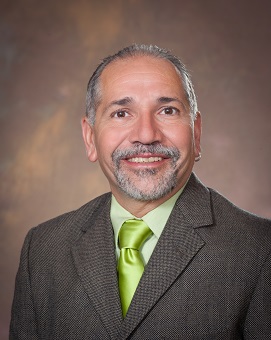Letter from the Acting Director

October 2022. If we take a step back and reflect on what we – as individuals, communities, a state, a nation, and our world have undergone, there is no doubt that words such as stress, turmoil, grief, loss, hardship, and several other terms could be used to describe our individual situations. At the same time the Covid 19 pandemic has reinforced two realities: First, despite the continued disparities that have been known to exist across Latino communities (e.g., income, health, education), Latino communities across the globe are resilient. The pandemic has forced a reimagination of our supports, services, and community building to deal with adversities but at the same time to promote our collective wellbeing.
Researchers have reinforced that one of the reasons that Latino communities have faced such large losses is because of our overrepresentation in industries that have been most impacted by the pandemic – most notably the service industries. During the pandemic, Latinos were not only more likely to contract Covid, but also more likely to be hospitalized and to suffer catastrophic losses. The disproportionate number of Latino households that are either underinsured or uninsured has also impacted Latino families and communities. The economic impact of Covid has also impacted Latinos as noted in higher rates of job loss. While there has been an increase in U.S. employment opportunities, the labor recovery for Latinos continues to show slower return to pre-pandemic levels than other communities of color.
A 2021 Report by the Pew Research Center underscores the impact that the pandemic has had across the U.S., and more specifically, within Latino communities. Despite the realities of the consequences related to the pandemic, one fact is evident. Latino-serving community-based organizations have attempted to fill voids – in areas such as food insecurity, health services, and educational programs to ensure continued academic achievement of Latino youth. This sense of community and of commitment to ensuring well-being offers unique and long-lasting supports to overcome experienced adversities. The Pew Report also highlights that Latinos are optimistic about the future – including economic recovery and family/individual well-being.
In this NEXO issue, we examine but a few issues related to health concerns of Latino communities and priorities that can be adapted to ensure the healthy future of Michigan. More important, the issue honors the longest serving director of the Samora Institute, Dr. Rubén O. Martinez, who has led the Samora Institute since he was hired in 2007. Dr. Martinez’ footprint in Michigan, and throughout the Midwest, has fostered a longlasting legacy through his outreach, bringing together of various sectors of MI and the Midwest, and his unwavering commitment to supporting Latino communities.
Having said this, Michigan State University will be undertaking a search for a new director. The commitment to supporting the Samora Institute remains an institutional priority.
References
Pew Research Center (2021). For U.S. Latinos, Covid-19 has taken a personal and financial toll. Washington, D.C.: Author. Last retrieved August 20, 2022,
from https://www.pewresearch.org/race-ethnicity/2021/07/15/for-u-s-latinos-covid-19-has-taken-a-personal-and-financial-toll/
